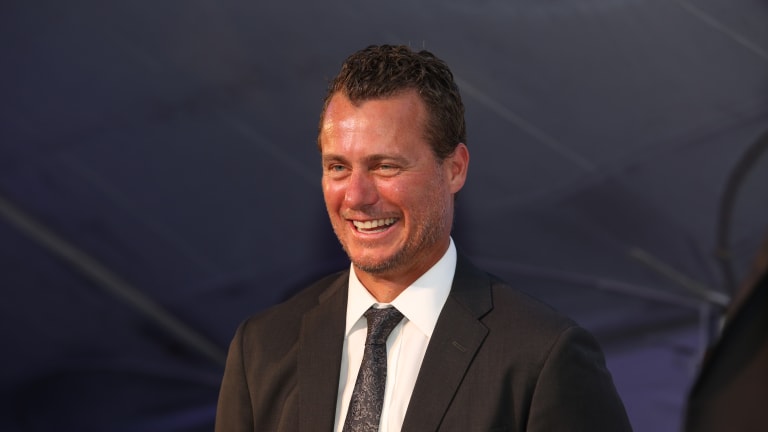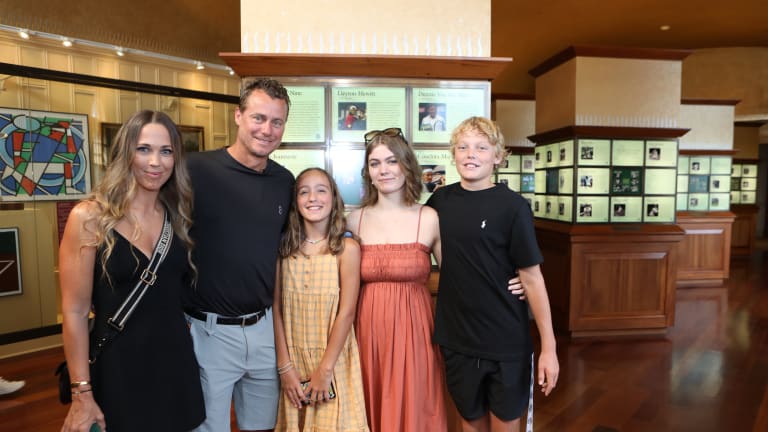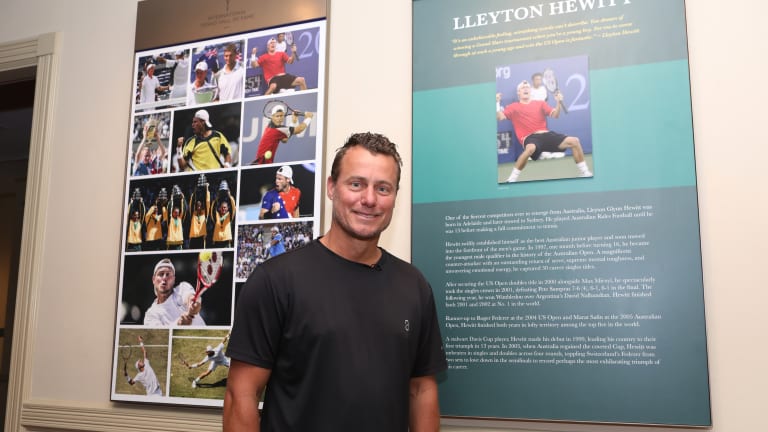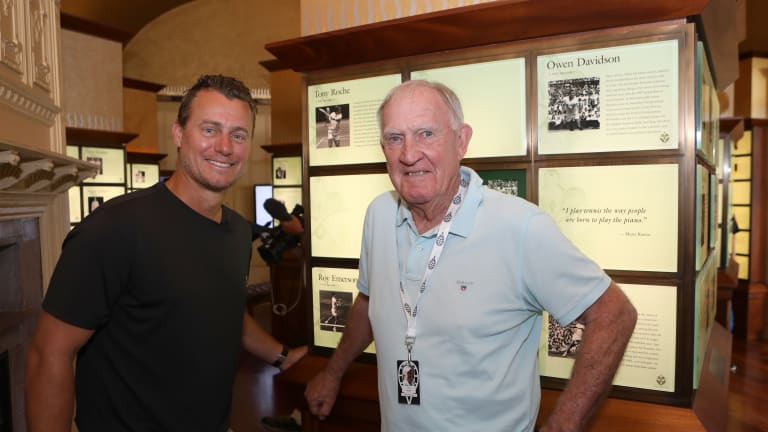On Saturday evening, Lleyton Hewitt will officially receive his sport’s highest honor when he is inducted into the International Tennis Hall of Fame. The 41-year-old was due to be enshrined last year as one of three Class of 2021 selections, until COVID-19 travel restrictions prevented him from making the trip to Newport, R.I.
During his standout career, Hewitt became the youngest player in history to reach No. 1 on the ATP singles rankings. He raised two major singles trophies at the 2001 US Open and 2002 Wimbledon and also triumphed once in men’s doubles at the 2000 US Open (with Max Mirnyi). Hewitt’s greatest joy however, came when contributing to his nation’s rich tradition of Davis Cup excellence, helping Australia to a pair of titles in 1999 and 2003—all while racking up the most total wins (singles and doubles) of any player to ever don the green and gold.
The Hall of Famer looks back on his journey, career connection to Newport, importance of mentorship and more:
You’re finally here! You had to wait an extra year for this occasion. What’s the anticipation been like and how are you feeling now that the milestone weekend is here?
HEWITT: It has been a longer buildup I guess, than other people, but I enjoyed it as well. It probably wouldn't have been right trying to rush off with Australia, the borders, pandemic and everything that was going on the last couple of years. I’m going to be able to enjoy this weekend with my family and friends that are here. If you're just here getting inducted by yourself, I don't think it would nearly mean as much. So, the proudest part is having my family and friends here—people that have been such a big part of my career on and off the tennis court and made me the person that I am to here today.



